Fryin’ tonight! Tony Crolla recalls a life in Edinburgh chippies
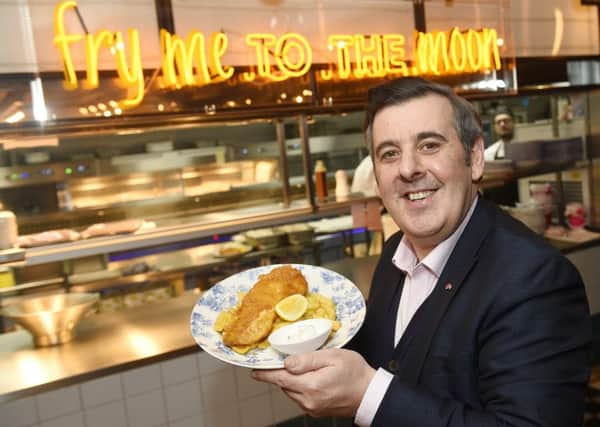

The ‘shop’ in question, Vittoria on the corner of Brunswick Street and Leith Walk, is where it all started for Tony, owner of Bertie’s on Victoria Street and CEO of The Vittoria Group, the family business that now spans three generations of Crollas.
When Bertie’s opened two months ago, it was the realisation of a long-held dream for Tony, who turned 50 last year.
Advertisement
Hide AdAdvertisement
Hide AdIn fact, 2018 proved a landmark year in more ways than one, he reflects.
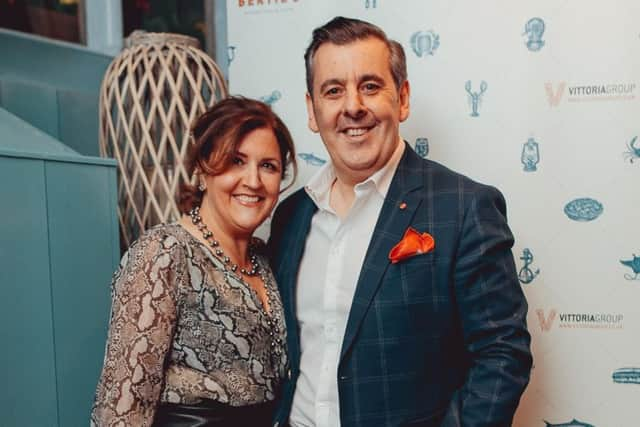

“It was a good year, I became a grandfather, lost a bit weight, was given an Italian knighthood, a Cavaliere, and opened the biggest fish and chip shop in Britain.”
“It’s been a bit hectic, but I’ve enjoyed it,” says the football loving businessman.
As we chat, the lunchtime rush is building in Bertie’s, which is named after his dad but dedicated to the memory of his late father-in-law, Antonio Picitti, the man who first fired his passion for fish and chips.
“My father-in-law was a very good man to me,” Tony explains, “My love for fish and chips came from him and his wife Antonietta.”
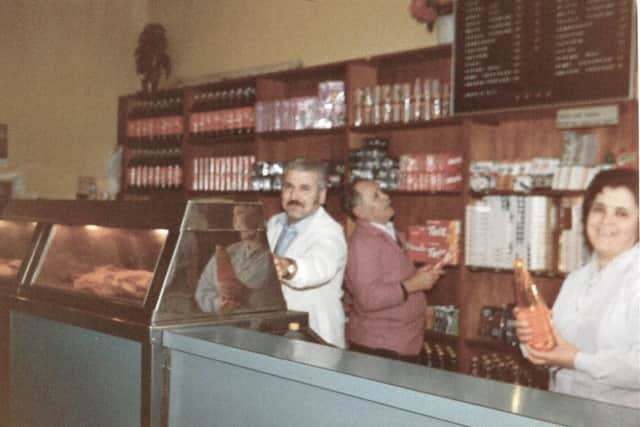

Tony first met Picitti when he started hanging around his chip shop, Tony’s Fish Bar on Ratcliffe Terrace, intent on courting his daughter, now his wife Angela.
“I had a soft spot for Angela but the only way I could get in touch with her was by going to her father’s shop where she worked.
“I’d go on the pretence of seeing one of her brothers, but her father knew I was really there to chat up his daughter,” he laughs, adding, “Back then, chip shops were so busy, he’d serve non-stop for four hours then there’d be a wee lull until the ‘pub rush’ when the bars closed.
Advertisement
Hide AdAdvertisement
Hide Ad“Watching him at work I realised what a great meal fish and chips were and from then on I always said, ‘I’m going to open a chippy one day’.
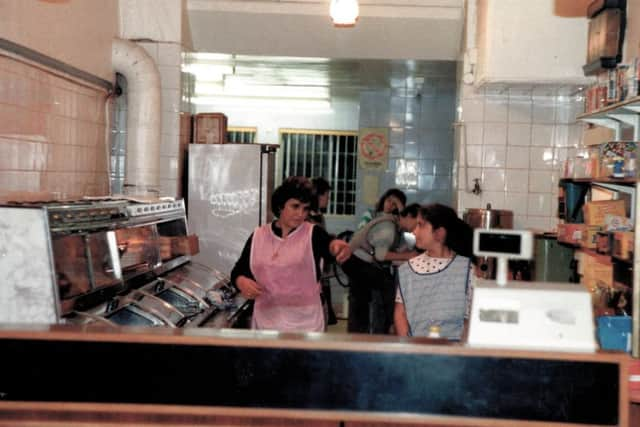

Tony married Angela in 1990 and they had two sons, Alberto in 1991 and Leandro, now manager of Bertie’s, three years later.
Leandro carries on a family tradition started back in the 90s when Tony himself was entrusted with the original Vittoria, by his mum and dad.
“We started in the 70s and by the early-80s I was working in the shop,” he recalls.
It comes as little surprise to discover that Tony, who attended St Mary’s York Lane Primary and St Thomas of Aquins High School, would follow his parents into the family business.
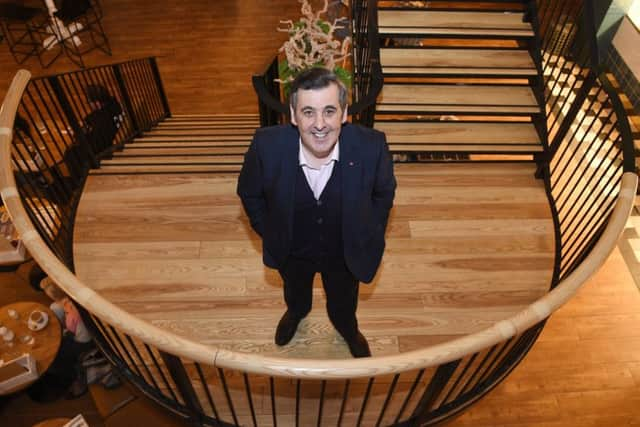

“I never even thought about it. I just did. I’ve always been passionate about doing things better and even then I had a vision,” he reflects.
Of course, when it opened, Vittoria wasn’t a chip shop, the adjoining chippy came later.
“Vittoria opened in 1970 as a tea-room cafe, but even then my dad, Alberto, was making big decisions.
Advertisement
Hide AdAdvertisement
Hide Ad“At first the menu was simple but as people travelled and more continental produce arrived in the UK, he saw the need to change.
“At first we did what people expected of an Italian cafe; ice cream, filled rolls, breakfast, meals and fish and chips.
“Chocolate was also a big thing but tobacco was even bigger. We had lots of brands of cigarettes, but by 1977 the market was already changing.
“By the early-80s the demand for chocolates and tobacco had started to wain as supermarkets opened.
“So my dad took the decision to get rid of all the chocolates and cigarettes at a time when probably half our turn over was coming from them.
“Instead he got a licence. Suddenly people didn’t want tea with their spaghetti, they wanted a beer or a glass of wine.”
Tony made his own mark on Vittoria in 1993 when he decided to get rid of its booths, then a familiar sight in Italian cafes.
He also introduced a more Mediterranean menu. Chiabattas and panninis had arrived.
Advertisement
Hide AdAdvertisement
Hide AdFor two years he also worked with his dad and mum Dina in the chip shop, but it wasn’t until last year that he achieved his own dream of owning one.
“I always said when we open a chippy, we’ll show them how it’s done. A proper chippy.”
And there’s an art to cooking proper fish and chips, he insists, for a start, the fish isn’t fried.
“You need the correct oil, a medium oil. The correct fish; it doesn’t matter if it’s fresh or frozen, what is important is that it is good fish; with the haddock we use, the deeper the water it comes from, the better.
“We aim for a thicker haddock from the North Atlantic, a sustainable fish, replenished naturally.”
As hinted at earlier, frying a fish is a misnomer.
“You actually steam it,” says Tony, explaining, “The heat from the cocoon of batter around the fish steams it and the fish should be medium rare, the flesh opaque.
“To do this, the oil has to be very hot, the batter very cold, then schuuum...” he demonstrates skimming the fish into the oil.
“Your fingers almost have to touch the oil, you can’t just throw it in. There’s a technique and it has to go in in a oner.
Advertisement
Hide AdAdvertisement
Hide Ad“Get it right and the batter instantly crisps up and the fish cooks in the steam.”
Then there are the chips.
“We do double-fried chips, cooked first at a lower temperature to blanch them, then we give them a shock to crisp them up when they are ordered.
“That way the potato is fluffy inside and crisp on the outside.”
In the old days, those proper fish and chips would have come wrapped in newspaper, a tradition long gone, but Tony recalls, “I remember people bringing in bags of old newspapers.
“Some papers had cheap ink and my fingers would be black by the end of the night.”
He adds, “The Evening News back then was a broadsheet, that was great for double-wrapping; a great steaming bag of chips... left open, of course.”